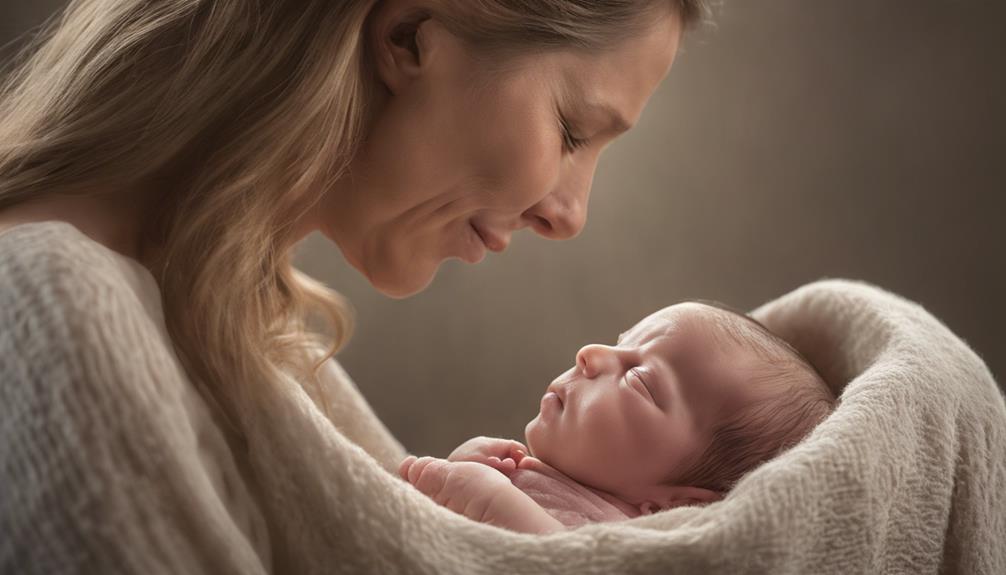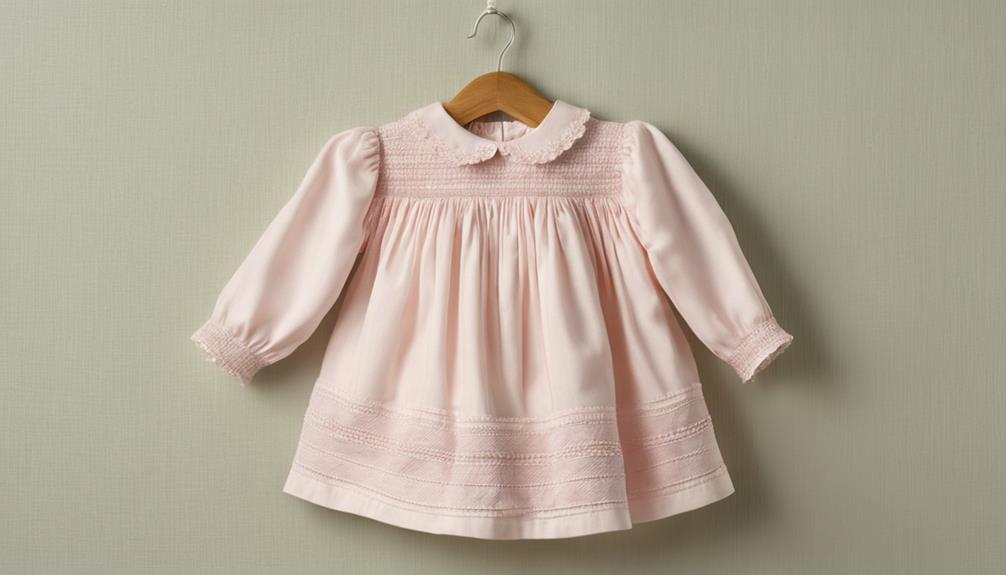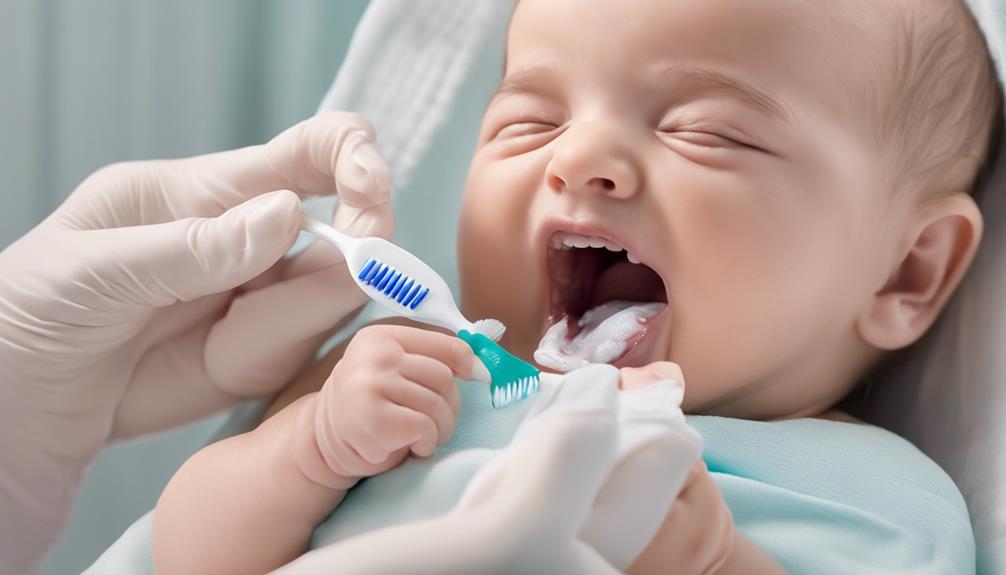If your newborn is experiencing hiccups, handling them with care is important. When those tiny diaphragms start to dance, you might wonder how to ease their discomfort without causing any harm.
From simple positioning adjustments to utilizing calming techniques, there are gentle ways to help your little one find relief. But what are the most effective methods to soothe those unexpected hiccups? Let's explore some practical strategies that can aid your newborn in these uncomfortable moments.
Key Takeaways
- Newborn hiccups are normal and aid respiratory development.
- Soothe hiccups with pacifiers and gentle back rubs.
- Use natural remedies like burping and calm feeding environments.
- Prevent hiccups by burping frequently and feeding in an upright position.
Understanding Newborn Hiccups
If your newborn is experiencing hiccups, it's important to understand that these are typically caused by spasms of their developing diaphragm. These hiccups can happen multiple times a day and may last for about 5 to 10 minutes each time. While it might worry you to see your little one hiccupping frequently, rest assured that this is a normal reflex in newborns. In fact, these hiccups play a role in the development of their respiratory system.
Factors like overfeeding, swallowing air, or rapid feeding can trigger hiccups in newborns. It's crucial to make certain that your baby isn't taking in too much milk too quickly, as this can lead to hiccups. Remember, hiccups in newborns are usually harmless and don't cause discomfort. By understanding the reasons behind these hiccups, you can help ease any concerns and support your baby through this common phase of development.
Soothing Techniques for Baby Hiccups

To alleviate your baby's hiccups, gently rubbing their back while holding them upright can help release trapped air bubbles. Here are some soothing techniques you can try:
- Offer a Pacifier: Providing a pacifier to your baby may help relax the diaphragm and stop hiccups effectively.
- Allow Natural Subsiding: Letting hiccups naturally subside within 5 to 10 minutes is a safe approach that poses no harm to your baby.
- Create a Calm Feeding Environment: Establishing a peaceful and soothing feeding environment can prevent hiccups in newborns and enhance comfortable feeding experiences.
- Avoid Gripe Water: It's advisable to steer clear of gripe water for treating hiccups in newborns due to the lack of scientific evidence supporting its effectiveness.
Natural Remedies for Infant Hiccups

When seeking natural remedies for infant hiccups, consider gentle methods that can provide relief without causing any harm to your little one. Burping your newborn during and after feedings is a simple yet effective way to release trapped air that may trigger hiccups. Offering a pacifier to your baby can help relax the diaphragm, potentially stopping the hiccups. Remember, it's crucial to note that using gripe water for hiccups in infants lacks sufficient clinical evidence of effectiveness.
Creating a calm and peaceful feeding environment can also help prevent hiccups in your newborn. By ensuring a relaxed atmosphere during feedings, you can help reduce the chances of hiccups occurring. Trust in these natural remedies to aid your infant in managing hiccups gently and effectively.
Positioning Tips for Hiccup Relief
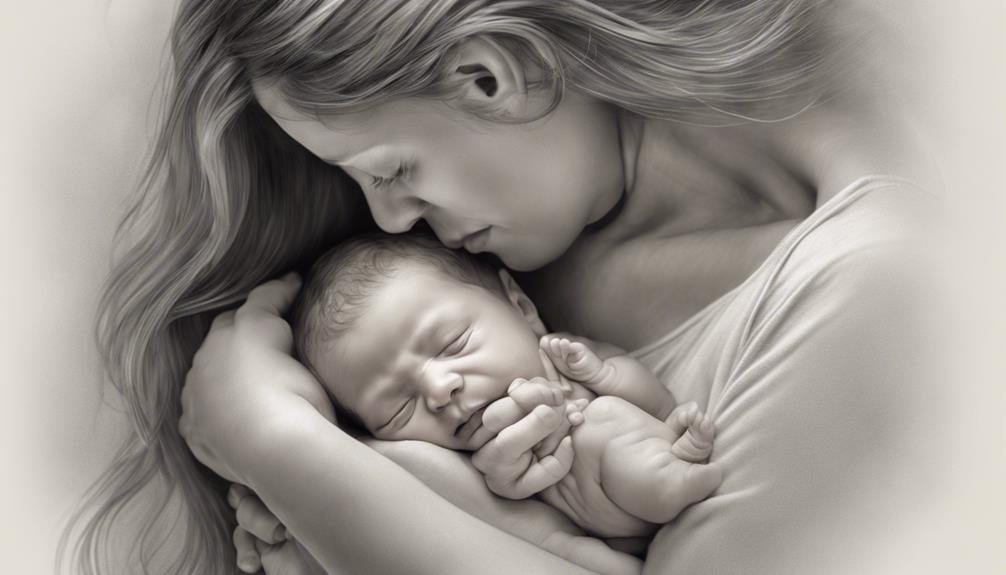
For hiccups relief in newborns, consider holding your baby upright after feeding to help gas escape more easily. Here are some positioning tips to help soothe your baby's hiccups:
- Hold Upright: After feeding, keep your baby in an upright position for about 20-30 minutes to aid in the digestion process and reduce the chances of hiccups.
- Gentle Patting: Lightly pat or rub your baby's back to help release any trapped air that could be causing the hiccups.
- Avoid Sudden Movements: Try to keep your baby calm and avoid sudden movements that could worsen the hiccups.
- Use Calming Techniques: Sing softly or gently rock your baby to create a soothing environment that may help stop the hiccups.
Preventing Hiccups in Newborns
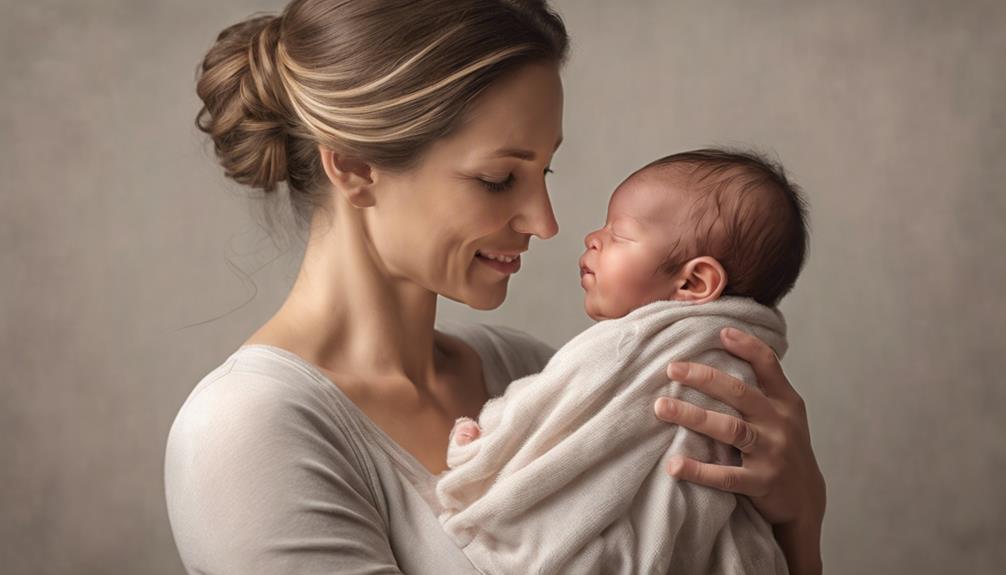
After addressing positioning tips for hiccups relief, let's focus on practical ways to prevent hiccups in newborns. To guarantee hiccups prevention in your baby, make sure to burp them frequently during and after feedings. This helps release any trapped air that could lead to hiccups.
Feeding your baby in a calm and upright position can aid digestion and reduce the chances of hiccups occurring. Offering smaller, more frequent feedings to your little one can also help prevent overfeeding, which is a common cause of hiccups in newborns.
Abrupt temperature changes during feedings should be avoided as they can contribute to stomach distention and hiccups. Additionally, gently rubbing your baby's back after feedings can help relieve any trapped air bubbles and alleviate hiccups.
Frequently Asked Questions
How Can I Soothe My Newborn's Hiccups?
You can soothe your newborn's hiccups by trying gentle burping, offering a pacifier, changing their position, rubbing their back, and ensuring a calm feeding routine. These methods can help relieve trapped air and relax their diaphragm.
Is It OK to Lay Baby Down With Hiccups?
It's perfectly fine to lay your baby down with hiccups. Hiccups are common and harmless reflexes in babies. If hiccups persist or cause concern, consult a pediatrician. Your baby's position won't impact the hiccups.
What Positions Help Newborn With Hiccups?
When your newborn has hiccups, try holding them upright on your shoulder to release trapped air. Placing them slightly inclined on your lap can aid digestion. Stay calm, pat their back gently, or rock them to soothe hiccups.
Do Hiccups Mean Baby Is Full?
When your baby hiccups, it doesn't necessarily mean they're full. Hiccups are a normal reflex aiding development and may occur due to swallowing air. Differentiate between hiccups and hunger cues to understand your baby better.
Conclusion
While newborn hiccups are a normal part of infancy, they can still be distressing for both baby and parent.
By using gentle techniques like burping, offering a pacifier, and changing positions, you can help alleviate your baby's discomfort.
Remember, prioritizing safe and natural remedies for your little one is crucial.
With patience and care, you can provide relief and comfort to your newborn during those pesky hiccups.
